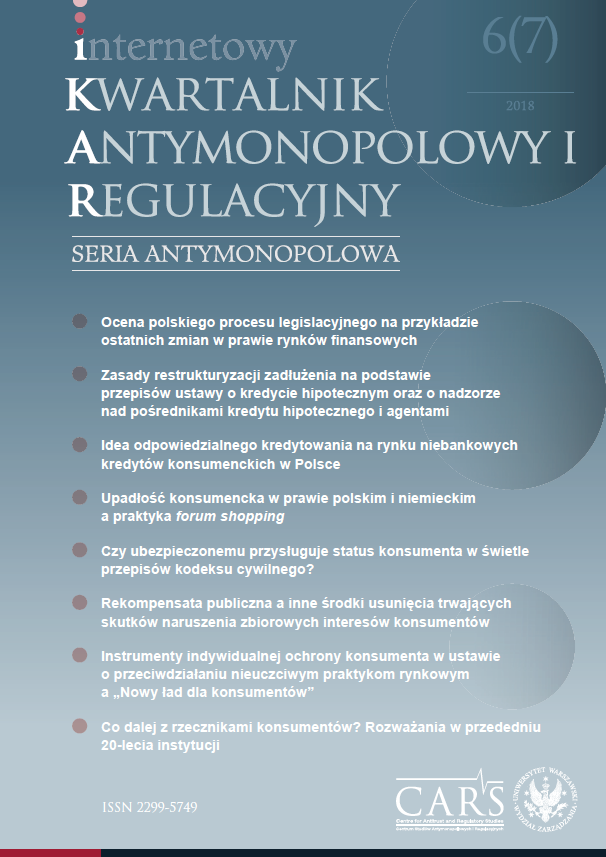Co dalej z rzecznikami konsumentów? Rozważania w przededniu 20-lecia instytucji
Future of the consumer ombudsmen. Remarks for the 20th anniversary of the institution
Author(s): Maciej Czapliński, Aleksandra KapnikSubject(s): Economy, Law, Constitution, Jurisprudence, Business Economy / Management, Law on Economics
Published by: Wydawnictwo Naukowe Wydziału Zarządzania Uniwersytetu Warszawskiego
Keywords: consumer; consumer ombudsman; system; reform; local government; district; ADR; OCCP;New Deal;
Summary/Abstract: The approaching 20th anniversary of the creation of a consumer ombudsman is an opportunity to summarize the legal bases and factual conditions for the functioning of ombudsmen in Poland and to ask about the future of this institution. Apart from a few cases, their competences are often unused in practice, primarily because of the lack of independence of the ombudsmen within the administrative structure of a district as well as inadequate funding of their activities. Individual elements of the consumer protection system, such as consumer ombudsmen, non-governmental organizations and ADR entities, do not cooperate with each other, do not exchange information or experiences. Moreover, they duplicate their tasks which leads to wasted potential and the generation of excessive costs. Meanwhile, the challenges of the modern economy and changes that have taken place in Poland over the last two decades require a reform of the system. There is need for new legislative solutions, which will guarantee the independence of consumer ombudsmen and strengthen their role in the local government, as well as organizational activities that will allow better separation of tasks to meet consumer needs and provide them with a high level of protection. The model of protection of individual consumers in Poland should be comprehensive (its elements should cooperate in an atmosphere of mutual trust), complementary (require the consumer to act, not replace it), flexible (adapted to the needs of different consumer groups), professional (ombudsmen should have legal education) and enable customer migration (to a more specialized institution if it is not possible to provide effective help at a given level). Creating a systematic vision and consistent implementation of detailed solutions in cooperation with all interested partners will make it possible to use the institution of consumer ombudsmen to its full potential
Journal: internetowy Kwartalnik Antymonopolowy i Regulacyjny (iKAR)
- Issue Year: 7/2018
- Issue No: 6
- Page Range: 104-118
- Page Count: 15
- Language: Polish

